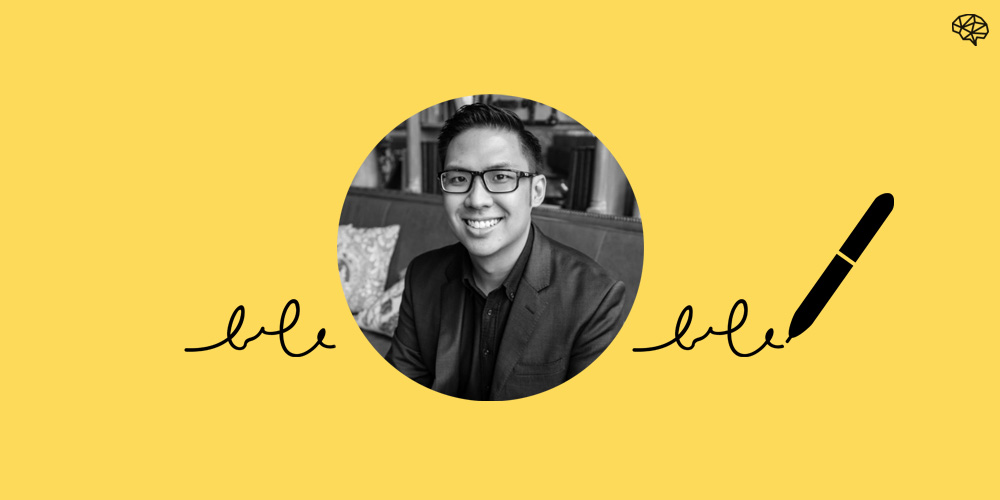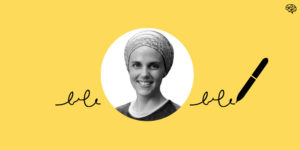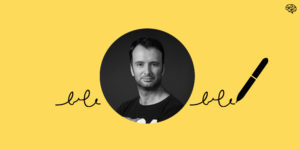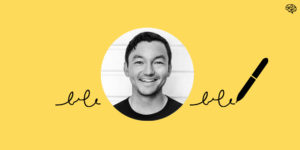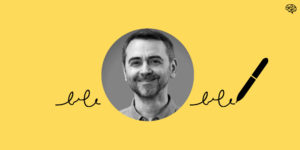I met Samuel Cheong on LinkedIn, clearly my favorite place to meet people.
He’s a young digital marketing specialist at Content Chemistry focused on helping startups and scale-ups build their sales and marketing engines. My kind of guy.
Since moving to Australia, Samuel decided to go all in as a digital marketer which has led him down the path of writing, building his personal brand on LinkedIn, and starting a podcast called The Marketer’s Guide (Spotify, Apple Podcast).
I was interested to learn about his writing process and work routine since his content is always value-packed and very consistent. Thanks for sharing your insights Samuel ✌.
In this interview, you’ll learn:
- The importance of having clarity of mind and preparation 🧠
- The value of working with a coach 🤝
- How to align all your work with your north star ⭐
- Simple tips for writing more effectively ✍
Let’s jump into the interview.
What does your work routine look like? Describe your typical day.
I’m quite fortunate to be working for a fully remote company. My day typically starts with making a coffee (I use an Aeropress) and then flows straight into a team huddle in the morning.
We manage all our projects and tasks using Monday.com. That’s the source of truth for all our tasks, projects and priorities. Before the week begins, I’ll do a weekly review to outline the bigger priorities for the week. Then each day, I’ll line up my tasks for the day and time block my calendar. Along the way I’ll also go through email to ensure I clear the decks — not quite inbox zero but I do make sure I don’t miss any big things.
Overall, the day is pretty predictable once it’s set up. The actual grind of the day is quite varied, from zoom calls to wading in various tech stacks and problem solving for clients. But that’s agency life and I love it.
What’s your secret to an effective work setup?
Being effective to me is about two things — clarity of mind and the right tools in the right place.
Clarity of mind means to be prepared. I try to spend some time in a ‘weekly preview’ on Sundays to prepare for the week. Checking calendars, tasks and projects and getting a sense of how I’m going to tackle them. I sometimes journal if I feel my mind muddied and overwhelmed.
For the kind of work that I do, it is very important to have plenty of screen real estate and a fast and reliable laptop. However for writing, I prefer to just use the one smaller screen as it has less distractions.
What helps you stay focused?
Focus to me is about having clarity over my priorities.
The better I prepare for the week and day, the more focused I feel.
I work with a coach once a month who helps me align towards the direction I want to head in my career and in life. That’s been a game changer. These sessions help me identify my big Why, but also to remind myself of how far I’ve come on my journey.
Practically though, nothing beats time blocking and doing deep work.
What do you do when you’re feeling overwhelmed?
One thing I try to do when feeling overwhelmed or stuck is to think of the Who before the Do.
The answer is not always in taking action, but it’s finding someone to help me get unstuck.
The game changer for me has been working with a coach on my personal growth. This has helped me so much in clarity, goals and focus. I’m an external processor, which means I figure things out best by talking with someone. Having a coach really has been my secret to growth.
You’re a marketer, writer, and most recently a podcast host. What strategy do you use to prioritize your work?
It sounds like they’re separate things I do, but they’re all actually part of my north star.
It’s like having a compass with no map — I don’t have it all figured out, but I know that I’m heading in the right direction. This helps me know what to build to get me there.
While they seem like a lot, they actually overlap in useful ways. For example writing helps me meet people and builds relationships for guests on the podcasts. Podcasting helps me learn B2B marketing and demand generation that’s going to help me in my day job as a marketer.
Practically then, while I have big goals in each area, I’ll have smaller goals that help me make progress. For example, with writing I’m primarily posting on LinkedIn twice a day. For podcasting I’ve got a simple goal of publishing one episode per week. I make these simple goals and then time block to get them done. I just do my best to not break the streak.
What does your writing process look like?
I have different writing styles depending on the kinds of writing that I do.
If it’s for LinkedIn, I don’t start from scratch. I usually will start many posts that are in drafts or in Apple notes whenever I get inspiration. Inspiration comes from either reading books, listening to podcasts, scrolling through Twitter or LinkedIn. A great quote comes to mind:
“Read to collect dots. Write to connect them.”
– David Perell
Writing to me is about connecting the dots I’ve collected in my head (or really, in Apple notes).
When I want to start writing a post, I’ll usually look through drafts and start building it out from there. For writing, I have this habit of writing in the compose window itself. Something about seeing the text with the final formatting makes it come alive to me. I feel more creative and my writing flows smoothly.
Once I write, I’ll use a few different lenses to check for clarity, stickiness and resonance. The best thing about LinkedIn writing is that I just aim for quantity and my followers will determine the quality.
How do you strike the right balance between work and life?
It’s a great question that’s hard to answer. I would say that your work and the company you work for makes a big difference. Working remotely and being trusted to deliver good work is undeniably great for balance.
But also, it’s how you set boundaries for your work and decide when to turn it off. It really comes down to what you value and how you can prioritise better.
There’s a great quote that a mentor told me once. “The richest people are those with the richest relationships”. It reminds me that what matters most are the people in your life.
What book or podcast has shaped the way you work or think?
There’s just way too many and I’m kind of a bookworm. However, the books that most impacted me last year were:
- Show your work by Austin Kleon
- Ride of a lifetime by Bob Iger
- Psychology of Money by Morgan Housel
Some of my favorites that I read often or just get a good kick out of:
- Getting Things Done (David Allen)
- The One Thing (Gary Keller, Jay Papasan)
- Atomic Habits (James Clear)
- Shoe Dog (Phil Knight)
- Steve Jobs (Walter Isaacson)
Editor’s Note: you can find links to these books and more in my book list.
I love business books and especially those around productivity, marketing or business. However, I’ve also read some really good biographies and want to add more to my list. I also am learning to pick up fiction too like the Dune books.
It’s harder to choose podcasts, but some of the more influential ones to me are:
- The Futur with Chris Do
- The Knowledge Project with Shane Parrish
- Revisionist History with Malcolm Gladwell
I feel smarter listening to them, and I always come away with tons of ideas.
Share one productivity tool or tip that has impacted the way you work.
One thing that starting the podcast helped me learn is that tools are not as important when you start.
First create, then iterate. I bought a mic, designed something in Canva, recorded my trailer episode and then launched the podcast.
Here’s the Apple evangelist in me talking but getting the M1 Macbook Pro for me has been a game changer in terms of the work I do as a marketer, writer and now hosting a podcast. It’s been my primary work machine and it’s brilliant.
Any parting advice for creators?
The best tip I can give for creators is to create every day.
What I’ve come to embrace is that being creative is a skill. That means you can get better with practice. Some of us are more naturally talented but all of us can work at being more creative.
One more thing — be generous. Whether it’s free content, dishing out free advice or hopping on one to one calls, there’s nothing like having a “give first” mindset. Focusing on yourself is playing the finite game, but focusing on others is playing an infinite game. Giving is the best way to grow.
Lastly, don’t be afraid to break the rules. Test and see what works for you, even if it means not following conventional rules.
**
Thanks Samuel!
You can find Samuel on LinkedIn.
Want more interviews? You can read all our interviews here.
✌
